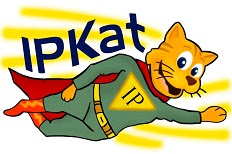
Marlene Prada Bautista applied to register at the
INDECOPI a figurative mark featuring a rectangular label which contains the stylized shape of a woman’s body and the word mark ‘fájate’; colour was not claimed. The word ‘fajate’ comes from the reflexive verb ‘fajar’ meaning I wrap myself. The actual item which you use to wrap yourself with is called ‘faja’. Generally a ‘faja’ is used by women who would like to look well shaped (in South America we use it mainly after giving birth and for special occasions – not that I ever needed one!) and is common in the sport arena for bracing or supporting your back.
The application originally was for ‘shoes, hats, dresses, lingerie, underbust, shapewear, and cyclist’s brace’ (Class 25). The question on this case was whether the sign was descriptive against the goods applied for.
The Office refused the mark considering inter alia that (1) the term ‘fájate’ comes from the action ‘fajar’, meaning to wrap part of your body with a ‘faja’. Therefore, the dispute term will be perceived by the public as an invitation to use ‘fajas’ as a underbust, shapewear and cyclist brace and thus, relating to the products that the manufacturer wants to distinguish; (2) even though the figurative mark presents other symbols, they are not distinctive since the disputed term is the one that stands out.
The applicant inserted a motion for reconsideration but this time limiting the sign to only ‘shoes, hats and dress’. The Office however, upheld the decision considering that the term was still descriptive of the goods applied for. It explained that there are some dresses that in the inside contain a type of ‘faja’ as to stylize the shape of the person wearing it (I wonder if the Officer tested the product). The view was also extended as to consider the need to keep free policy.
Miss Prada appealed to the Sala de Propiedad Intelectual (court of first instance) requesting the decision to be annulled. However, at this time, she asked for the term ‘fájate’ to be avoided. The court started to analyse what a descriptive term is (Art 135 (e) Andean Community
Decision 486) and what makes a mark distinctive (Art 135 (b) Andean Community
Decision 486).
To sum up, the decision turned very much on the particular facts. The court studied the sign as a whole eluding the term. Specifically, the court examined the rectangular label which corners are rounded, containing in the inside a stylized shape of a woman’s body and a characteristic writing. Therefore, the court reversed the Office’s decision due to considering that the sign was distinctive against the goods applied for. Uh? did I miss something?
The moral of the storyStories are meant to teach you a lesson. In law, we look for eliminating the complexity of issues. However, this case leaves us with the same questions as always – where to draw the line when in presence of descriptive marks and those that are not capable of distinguish? I believe that these issues are indeed a question of fact. That said, if we analyse the case I agree with the Officer’s view. He rightly evaluated the sign as a whole. At this stage we must remember that the term was claimed as being part of the mark, but yet the Officer said that those other parts of the sign were not distinctive because the only distinctive part of the sign was the term (which was descriptive). I wonder why the Court did not see that.
If we remove the part that stands out, we are left with a quite common label for ladies evening wear. But then, this will not be a matter of descriptiveness but a matter of distinctiveness instead. If the term can be used by anyone in commerce, what makes this particular sign distinctive from others?
Clearly, decisions are made case by case, yet I consider that the mark in this case is one of those that can go either way. I finish by saying that there is indeed such a thing as bad trade marks and hence, manufacturers that do like risks (terrible
tanguero that does not compete fairly!). Evidently, to own a mark that can be easily associated with others, will make the former weak.
The case in Spanish can be found in
here.

 By an executive Decree (No 181), the Ecuadorian President, Rafael Correa, ordered the creation of a public drug company called ENFARMA PA. The purpose of this company includes research and development of active ingredients for the manufacture of drugs for human use, veterinary and agronomic. Besides, it will produce medicines already patented – relating to the recently announcement of compulsory licenses. The company also will be involved with the marketing, import, export, packaging, labelling, and distribution of drugs.
By an executive Decree (No 181), the Ecuadorian President, Rafael Correa, ordered the creation of a public drug company called ENFARMA PA. The purpose of this company includes research and development of active ingredients for the manufacture of drugs for human use, veterinary and agronomic. Besides, it will produce medicines already patented – relating to the recently announcement of compulsory licenses. The company also will be involved with the marketing, import, export, packaging, labelling, and distribution of drugs. It looks like the government is trying to monopolize the drug industry.
It looks like the government is trying to monopolize the drug industry.
















































